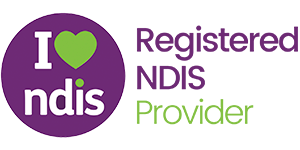The National Disability Insurance Scheme (NDIS) is essential for people with vulnerabilities across Australia. Its support services provide comprehensive assistance to its participants, allowing them to overcome the limitations caused by impairments and enhance their overall quality of life.
Let us explore more about NDIS and how it provides comprehensive care solutions for its participants.
Understanding Functional Capacity Assessments
A functional capacity assessment is a pivotal tool within the NDIS framework, comprehensively evaluating an individual’s abilities and challenges. It includes a holistic analysis of an individual’s physical, cognitive, and social capabilities. By assessing various aspects of functioning, such as mobility, communication, self-care, and social interactions, these assessments offer a comprehensive understanding of an individual’s daily life experiences.
The outcomes of these assessments build the foundation for a personalised support plan. These assessments monitor limitations and highlight strengths and potentials within an NDIS participant. This person-centred approach accessed through personalised plans ensures that participants receive support tailored to their specific needs, aspirations, and aspirations, fostering a sense of empowerment and inclusivity.
Determining Required Support Through Assessments
One of the central roles of capacity assessments is to gain the precise level of support an NDIS participant requires. These assessments provide an objective foundation for NDIS planners to develop tailored plans, ensuring that participants receive the appropriate funding, resources, and services to address their challenges and goals.
By examining an individual’s functional capabilities, support providers can identify areas where support is needed, whether in terms of daily living activities, communication aids, mobility devices, or social participation programs.
This personalised approach allows participants to access the right services, such as NDIS core support, assistive technologies, or any other assistance they need. Also, it ensures that the support provided aligns with the participant’s unique circumstances, enabling them to engage more actively in their communities and lead fulfilling lives.
Importance of Assessments in NDIS
Assessments are crucial to the NDIS as they enable planners to choose the right support services for vulnerable individuals and help them access a holistic healthcare system.
1) Ensuring Tailored Support
These assessments break down barriers by recognising each vulnerable participant’s unique challenges and strengths. It ensures that support is not based on generalised diagnoses or assumptions but on a detailed understanding of the individual’s needs and aspirations.
2) Personalised Plans for Better Quality of Life
The NDIS operates to provide support that enables participants to lead meaningful lives. Their capacity assessments play a pivotal role in this mission by helping planners create highly personalised support plans.
Such plans consider every aspect of the participant’s life, from daily activities to long-term aspirations. This approach empowers participants to make choices that align with their goals and enhances their overall quality of life.
How Functional Capacity Assessments are Conducted?
Capacity assessments at NDIS are conducted carefully to gather information and insights to better understand the participants and the type of support they require.
They employ a combination of methods, including interviews, observation, and standardised assessments, to better understand the individual’s physical, cognitive, and social abilities. This holistic approach ensures that no person’s daily life is overlooked.
The Assessment Process
The process of undergoing a capacity assessment typically involves several stages. At first, the participant and their support network, including family members or caregivers, provide background information about the individual’s medical history, daily routines, and challenges.
Moreover, healthcare professionals and therapists conduct in-person assessments. These assessments involve tasks and scenarios designed to evaluate the individual’s capabilities, such as communication, mobility, and self-care. The participant’s input and observations are integral, fostering a collaborative assessment approach.
The Role of Healthcare Professionals, Therapists, and Support Coordinators in Assessments
Gaining accurate results is essential to ensure proper support is provided to individuals with impairments, and healthcare professionals play a crucial role in it. Healthcare professionals, including doctors and nurses, provide medical insights, while therapists, such as an NDIS occupational therapist, assess specific functional domains.
Support coordinators are pivotal in directing the functional capacity assessment process, facilitating communication between the participant and the assessors, and ensuring that the participant’s unique needs are considered.
Assessment Outcomes and Their Impact on NDIS Participants
The assessment outcomes help in shaping the support journey of NDIS participants. These assessments can lead to various potential outcomes, each tailored to address individuals’ unique needs and aspirations. An individual’s assessment might result in their eligibility for NDIS support, categorised into different levels of need.
For example, NDIS core support includes a spectrum of assistance, ranging from daily activities like personal care and transportation to participation in community engagement programs.
Impact on NDIS Participants
The assessment outcomes directly influence the creation of NDIS plans, which serve as personalised roadmaps for participants’ support journeys. These plans encompass the participant’s needs, goals, and desired outcomes. Assessment outcomes act as the guiding compass, ensuring the allocated funds are directed towards the core supports identified during the assessment.
These tailored plans empower participants by enabling them to access a range of essential services and resources for enhancing their quality of life and fostering community integration.
For instance, if an individual’s assessment highlights challenges related to mobility and communication, their NDIS plan may allocate funds for services such as physiotherapy, assistive technology, and communication aids. Thus, assessment outcomes are essential to ensure these services are directly aligned with the participant’s requirements.





